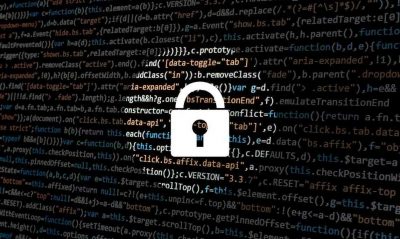Ukraine Wants to Basically “Kick Russia Off the Internet”. Terrible Idea

Many of the world’s most popular platforms and services have sought to stymie Russia’s information operations and propaganda amid its illegal invasion of Ukraine. Meta, Google, Twitter, TikTok, and others have de-platformed, de-monetized, and de-amplified Russian state media and official channels, making them official participants in the information war that they largely refused to wade into in the months and years leading up to the war on Ukraine.
Apple joined in by removing RT and Sputnik from its App Store outside of Russia and went a step further and stopped all product sales and Apple Pay services in the country, a move that will undoubtedly affect ordinary Russians far more than the ruling class. Netflix has refused to carry Russian channels, and Warner Bros. and Disney have nixed upcoming movie releases in the country. Ukraine has encouraged this and recently asked Xbox and Sony to block Russian and Belarusian accounts and prevent gamers and teams from participating in or hosting esports events.
But Ukraine wants to go even further by kicking Russia off the internet.
On Monday, Ukraine’s Ministry of Digital Transformation sent a letter to the Internet Corporation for Assigned Names and Numbers, or ICANN, the body that oversees the domain system that forms the backbone of the open web. The letter asks ICANN to shut down Russian-administered domain names (think .RU, .SU, and .рф) and root servers in the country; to revoke Russia’s control of its top-level domain name system root servers; and to revoke the digital signatures that authenticate domain names. This is all a bit technical, but it basically means that the part of the internet run by Russia would not work. Most Russians won’t be able to access their email or apps, search the web, or access local websites because they resolve using the country-level domain. It would also create substantial security risks for anyone trying to navigate to one of those sites.
The domain name system, or DNS, is like the internet’s phone book, allowing anyone to type in a web address and get to the right place without having to figure out the corresponding string of numbers. The ability to authenticate a site is a crucial part of combating disinformation by preventing tampering and impersonation—which means that if you tried to get to novayagazeta.ru (the website of the independent newspaper Novaya Gazeta, whose editor Dmitry Muratov was awarded the Nobel Peace Prize in 2021), you either would be stuck or could be directed to a spoofed site. The letter claims that “these measures will help users seek for reliable information in alternative domain zones, preventing propaganda and disinformation.”
But it would do the opposite, shutting down some 5 million domains—including those belonging to local news outlets, nongovernmental organizations, and civic groups—and potentially kicking much of the country offline. While it wouldn’t be a full-scale internet shutdown, “this is basically like kicking Russia off the internet,” according to Ephraim Kenyanito, a senior program officer at Article 19 whose work focuses on DNS and censorship. (Disclosure: I’m the U.S. adviser for Article 19.)
Local businesses, news outlets, and civil society would have to scramble to find new hosting services, which could be difficult given the increasing pressure to deny services to Russians. “Government ministries of health would be taken offline, including information on COVID. Basically it would prevent Russians from accessing information, and it would do disproportionate harm,” says Kenyanito.

